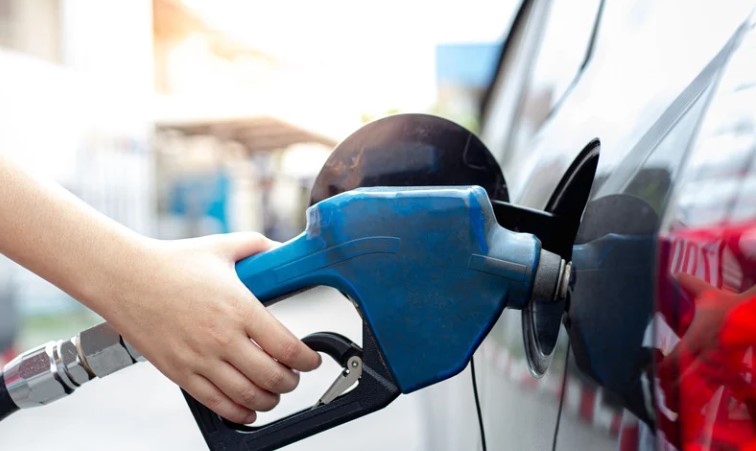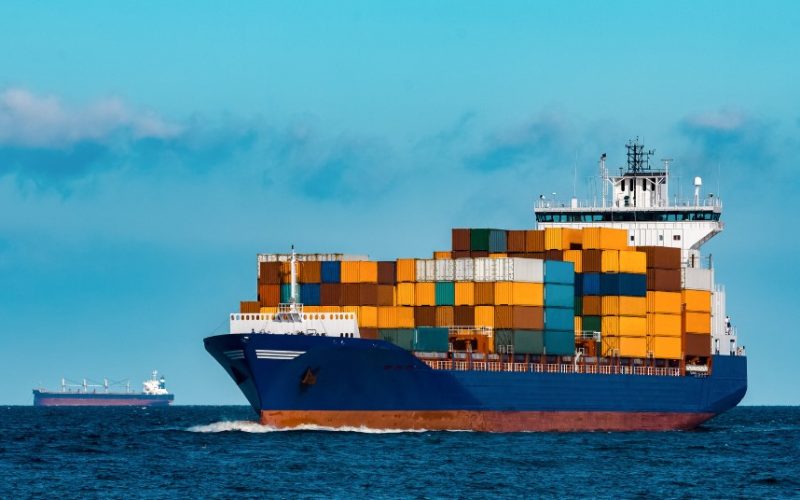Are you tired of spending a fortune at the gas pump whenever you fill up your vehicle? Well, you’re not alone. Canadians have been feeling the pinch of rising gas prices for quite some time now, and it’s only getting worse. But why are gas prices so high in Canada compared to other countries? In this blog post, we’ll dive into the reasons behind this ongoing problem and explore possible solutions that could help alleviate the burden on Canadian drivers. So buckle up, and let’s get started!
Introduction to Gas Prices in Canada
As of July 2019, the average price of regular unleaded gasoline in Canada was $1.26 per litre. This is a significant increase from the average price of $1.09 per litre in 2015, and Canadian drivers are feeling the pinch at the pump. So why are gas prices so high in Canada?
There are several reasons for the recent increase in gas prices. First, crude oil prices have been on the rise globally due to several factors, including political instability in oil-producing countries, increased demand from China and India, and production cuts by OPEC. These higher crude oil prices are passed down to consumers at the pump.
In addition, many provinces in Canada have implemented carbon pricing schemes as a way to reduce greenhouse gas emissions. These carbon taxes add an additional cost to gasoline, which is passed on to drivers.
There are also many taxes and fees levied on gasoline by all levels of government in Canada, which further increase the price at the pump.
Why Are Gas Prices So High in Canada?
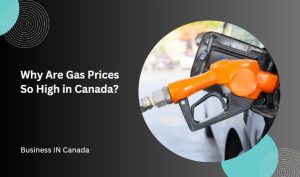
There are a variety of reasons why gas prices are higher in Canada than in other countries. One of the primary reasons is that the Canadian government have fuel tax more heavily than most other nations. In addition, Canada’s oil reserves are located further away from populated areas than many other countries, increasing transportation costs.
Additionally, environmental regulations in Canada are stricter than in many different places, which requires refineries to use more expensive processes to produce gasoline. Finally, the Canadian dollar has been relatively weak in recent years, making imported oil more expensive.
Main Reasons for High Gas Prices
Due to Russia’s invasion of Ukraine
As of late, Russia has been making headlines for many reasons. One of these reasons is their invasion of Ukraine. This invasion has had a ripple effect on gas prices in Canada.
Before Russia invaded Ukraine, they were one of the world’s largest exporters of natural gas. In fact, Europe gets about 30% of its natural gas from Russia. But now that they’ve invaded Ukraine, Europe is looking for other suppliers, and this has caused the price of natural gas to go up.
And since Canada is one of the world’s largest natural gas producers, we’ve been able to capitalise on this situation. We’ve been selling our natural gas at a higher price to European countries that are desperately searching for new suppliers.
So, if you’re wondering why gas prices have been so high in Canada lately, blame it on Russia and their invasion of Ukraine.
Due to OPEC
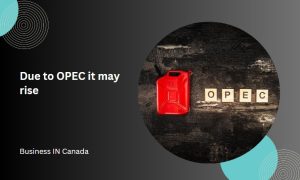
OPEC, or the Organization of the Petroleum Exporting Countries, is a cartel regulating oil production and price on the global market. Canada is not a member of OPEC, but because we are a major producer and exporter of oil, we are affected by their decisions.
In recent years, OPEC has intentionally limited oil production to drive up prices. This has led to higher gas prices for Canadians, as the cost of crude oil makes up a large portion of the price at the pump.
OPEC’s Politics and current events also influence OPEC’s decisions. For example, tensions in the Middle East can lead to higher oil prices because it may be seen as a riskier investment. Additionally, when there are major natural disasters or other disruptions in supply, this can also lead to higher gas prices.
Due to The lasting effects of the pandemic
Due to the lasting effects of the pandemic, gas prices in Canada are expected to remain high for the foreseeable future. The pandemic has put a strain on global oil markets, and as a result, gas prices have been rising steadily since early 2020. In addition, the Canadian government has placed a carbon tax on gasoline, which has also contributed to higher prices at the pump.
So why are gas prices so high in Canada? Several factors have played a role in the current situation. First and foremost, the pandemic disrupted the global oil markets. This has led to higher crude oil prices, which in turn has pushed up gas prices across the country. Secondly, the Canadian government has implemented a carbon tax on gasoline as part of its efforts to combat climate change.
This tax adds an additional cost for consumers at the pump. Many Canadians are still working from home and driving less as a result. This has led to lower demand for gasoline and, consequently, higher prices.
Despite these challenges, there are some silver linings when it comes to gas prices in Canada. For one thing, they’re still relatively low compared to other countries around the world. In addition, many experts believe that prices will eventually come down as the pandemic subsides and global oil markets stabilise. So while gas prices may be high right now, there’s reason to believe they’ll eventually return to normal levels.
Impact of High Gas Prices on Economy and Consumer Spending
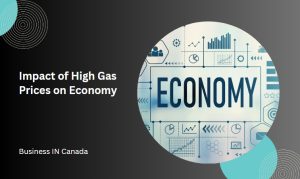
The high cost of gas is causing Canadians to spend less money on other goods and services. This decrease in spending is having a ripple effect on businesses across the country, as they are seeing a decline in sales. The tourism industry is also feeling the pinch, as fewer people are taking vacations due to the high cost of travel.
It’s clear that the high cost of gas is having a negative impact on the Canadian economy and consumer spending. The good news is that there are some things that can be done to help ease the burden. For example, the government could provide financial assistance to low-income households so they can still afford basic necessities like gas and food.
Alternatively, businesses could offer discounts or promotions for customers who use alternative transportation methods, such as public transit or carpooling. Whatever measures are taken, it.’
Potential Solutions to Lower Gas Prices
There are many potential solutions to lower gas prices in Canada. One solution is for the government to invest in public transportation. This would make it easier for people to get around without using their cars and take some of the demand off the roads. Another solution is for the government to invest in alternative energy sources, such as wind and solar power.
This would help reduce our reliance on oil and ultimately lead to lower gas prices. Finally, as consumers, we can do our part by carpooling or using public transportation whenever possible. Every little bit helps!
Conclusion
In conclusion, it is clear that there are some factors that have contributed to the high gas prices in Canada. From taxes and refinery costs to global demand and supply dynamics, all of these elements play an essential role in determining the price at the pump.
As consumers, we can do our best to be mindful of our fuel consumption habits and look for ways to be more efficient with energy use. Also, governments must take action on taxation policies not to strain citizens’ wallets when purchasing gasoline.
FAQ – Why Are Gas Prices So High in Canada?
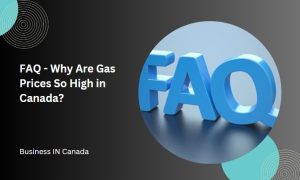
What is causing gas prices to rise in Canada?
There are a variety of factors that contribute to rising gas prices in Canada. One key factor is the price of crude oil, which is the major component of gasoline. Crude oil prices are volatile and can be influenced by geopolitical factors, such as tensions in the Middle East. Another factor that affects gas prices is refining capacity.
When there is less refining capacity, gas prices tend to rise. This can be due to unexpected disruptions, such as hurricanes or maintenance issues. Taxes and government regulations can also impact gas prices. For example, the carbon tax in some provinces has caused gas prices to increase.
Why are Canadian natural gas prices so high?
There are a variety of reasons why natural gas prices are higher in Canada than in other parts of the world. One reason is that Canada has a relatively small market for natural gas compared to the United States and Europe. This means less competition among buyers and sellers, which can lead to higher prices.
Another reason is that Canada’s production costs are generally higher than in other parts of the world. This is due to a number of factors, including the high cost of transportation and the need to drill in remote, northern areas. Additionally, many of Canada’s natural gas reserves are located in unconventional sources, such as shale gas deposits, which require more costly drilling and extraction methods.
Canadian provinces have different regulations regarding natural gas development and pricing. For example, some provinces have implemented carbon taxes on greenhouse gas emissions from natural gas production. These taxes can add significant costs to projects and ultimately lead to higher prices for consumers.
Who controls gas prices in Canada?
There are a number of factors that contribute to the price of gasoline in Canada. The most important component is crude oil price, which is influenced by worldwide supply and demand. Other factors include transportation costs, refinery costs and profits, taxes, and marketing and distribution costs.
The Canadian government does not control the price of gasoline. However, it does regulate the retail margin (the difference between the wholesale price and the retail price) that gas station operators can charge. The government also imposes taxes on gasoline, which account for a significant portion of the price at the pump.
Who pays the most for gas in Canada?
According to the most recent Times data, Southern Vancouver Island has Canada’s highest large-market petrol costs. Aside from the far reaches of the Arctic, no one pays more for petrol than Greater Victoria.
How much tax do I pay on a litre of gas in Ontario?
In Ontario, the gas tax is 13% cents per litre for gasoline and diesel.
This includes 4.7% in federal excise tax, 5.5% in provincial fuel tax, 1.1% in Ontario cap and trade carbon tax and 1.7%in GST.




